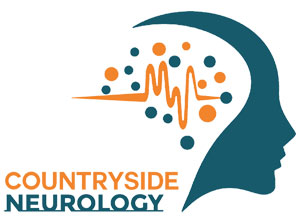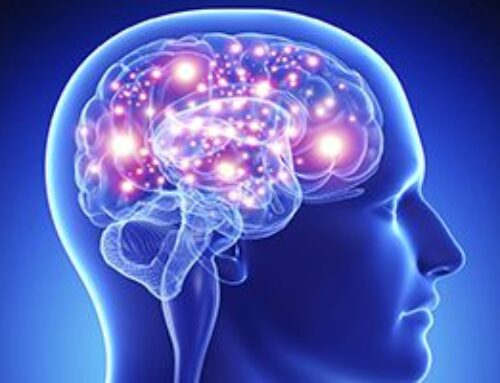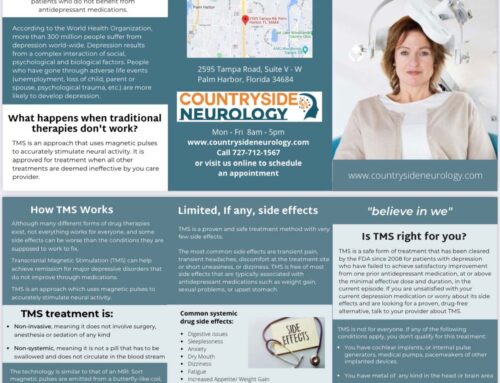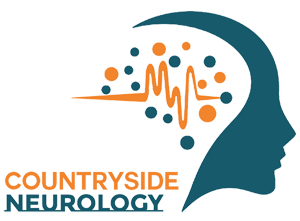Chronic pain is a debilitating condition that affects millions of people worldwide, leading to a reduced quality of life and significant emotional distress. For many, opioids have long been the go-to solution for managing chronic pain. However, the risks associated with opioid use—including addiction, tolerance, and overdose—have led to an urgent search for safer, more effective alternatives. Enter Transcranial Magnetic Stimulation (TMS), a non-invasive, non-pharmacological treatment that is showing promising results for chronic pain management. At Countryside Neurology, serving the Pinellas and Tampa Bay area, we’re proud to offer TMS therapy as a safe, effective alternative to opioids for our patients. Read on to learn how TMS can help you reclaim your life from chronic pain.
Understanding Chronic Pain and Its Challenges:
Chronic pain is defined as pain that persists for more than three months, often without a clear cause. It can affect various parts of the body and can be constant or intermittent. The impact of chronic pain goes beyond physical discomfort; it often leads to sleep disturbances, depression, anxiety, and a diminished ability to perform daily activities. For many years, opioids have been prescribed to manage this relentless pain. While they can provide temporary relief, opioids come with a host of serious side effects and risks, including the potential for dependency.
TMS: A Revolutionary Approach to Pain Management:
Transcranial Magnetic Stimulation (TMS) is a cutting-edge treatment that uses magnetic fields to stimulate nerve cells in the brain. Originally developed to treat depression, TMS has gained attention for its ability to modulate pain perception and provide relief to those suffering from chronic pain. Unlike opioids, TMS does not involve medication, which means it is free from the risks of addiction and tolerance. The therapy is performed in a comfortable, outpatient setting, and patients can resume normal activities immediately after each session.
How TMS Works for Chronic Pain:
TMS targets specific areas of the brain that are involved in pain processing. By delivering targeted magnetic pulses to these areas, TMS can alter brain activity in a way that reduces the perception of pain. Research has shown that TMS can be particularly effective in treating various types of chronic pain, including neuropathic pain, fibromyalgia, and complex regional pain syndrome (CRPS). Over time, TMS therapy can lead to long-lasting changes in how the brain processes pain, providing sustained relief even after the treatment sessions have ended.
The Benefits of TMS Over Opioids:
– Non-Addictive: TMS does not involve the use of any substances, eliminating the risk of addiction and dependency.
– No Systemic Side Effects: Unlike medications, TMS does not affect the entire body, so patients can avoid side effects like nausea, drowsiness, and constipation that are common with opioids.
– Long-Lasting Relief: While opioids only provide temporary relief, TMS has the potential to offer long-term improvements in pain management.
– Non-Invasive: TMS is a non-invasive procedure, meaning there are no surgical risks or recovery times associated with the treatment.
Why Choose Countryside Neurology for TMS Therapy?
At Countryside Neurology, we are committed to providing our patients with the most advanced and effective treatments for neurological conditions. Our experienced team, led by Dr. Khademi, understands the complexities of chronic pain and works closely with each patient to develop a personalized treatment plan. We serve the Pinellas and Tampa Bay area, offering compassionate care and state-of-the-art treatments like TMS therapy in a warm, welcoming environment.
If you’re struggling with chronic pain and are looking for a safe, effective alternative to opioids, TMS therapy at Countryside Neurology may be the solution you’ve been searching for. Take the first step towards a pain-free life—call us today at 727-712-1567 to schedule a consultation and learn more about how TMS can help you manage your chronic pain without the risks of opioids.




